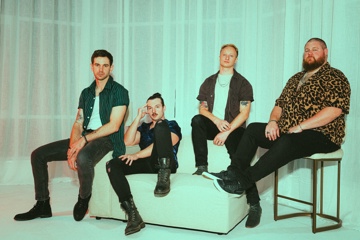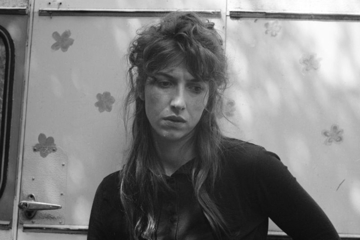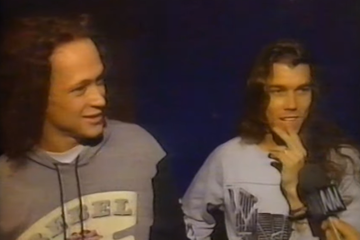Stepping In To Ensure The Safety Of Others
"Sometimes as a performer you see things happen in the crowd and you have to call them out and you have to sometimes even summon security."
The life lessons that Sadie Dupuis has experienced as frontwoman and songwriter for excellent Massachusetts indie rockers Speedy Ortiz - as well as her time spent as mastermind behind politically infused pop provocateurs Sad13 - manifest not only in her empowering music but also in the imprint that her band's safer spaces initiatives have left on the wider musical community.
In 2015 Speedy Ortiz opened a help hotline for during shows, for fans to text if they felt safe or needed assistance, and in the intervening years they've introduced even more strategies to make live venues as safe as they can possibly be for all members of the music community.
"I think it's sort of a learning process for people on all sides of the stage, whether that's the performer or someone managing a venue or just someone attending a show," Dupuis explains. "I think the nice thing behind the expression 'safer spaces' is that we're always learning how to treat each other better and treat more people with respect. As the past few years have gone by, we started off doing this hotline and then we started posting just very loose safer-space guidelines and, more recently, I've been including de-escalation strategies and bystander intervention strategies that I leave at the merch table.
"What's been really heartening is that a few years ago it was very rare to play a venue or a festival and see anything posted about safer spaces, whereas this year for instance at the Warped Tour they had a booth there teaching people about safer spaces and how to prevent assaults at festivals like that. So I think more people have seen this and realised that it could be a good thing for their venue or festival and are rolling with it.
Don't miss a beat with our FREE daily newsletter
"Certainly when I send a contract or our rider to a venue, it's always great to have them respond back that they already have their own safer-spaces policy instituted or that they already have gender-neutral bathrooms. It's just great to show up and realise that everyone is working together to make concerts a better experience for more people."

The mere fact that people are exposed to these safer-spaces guidelines and strategies at concerts is bound to have a positive flow-on effect, even if only by making people think about their responsibilities to each other in such environments. "That's definitely been the case in our experience," Dupuis concurs. "Along with this hotline, once we started implementing this we required safer-spaces guidelines to be posted as well, which include how to look out for one another and how to intervene if you hear language that's discriminatory or even just how to look out for someone who's experiencing harassment.
"And certainly I wouldn't say that Speedy Ortiz shows are the most upsetting or violent things, but sometimes as a performer you see things happen in the crowd and you have to call them out and you have to sometimes even summon security, but I'd say that I've seen that way less since we started posting these guidelines."
The bystander intervention strategies are an interesting concept, giving people ideas on how to properly interject themselves into a situation when it becomes clear that third-party intervention is warranted. "It's the idea that you're looking out for other members of your community," Dupuis offers of the concept. "So for instance if you see someone who you think might be experiencing harassment but maybe you think you might escalate things by intervening, or sometimes people don't intervene just because they think it might be awkward, which is a really sad reason not to give someone help — but there are a number of different tactics that you can use to sort of safely assess a situation so we hand out guidelines for those.
"One of the ones that I think is best is just interjecting in the conversation and pretending that you recognise the person that is experiencing harassment, you can say, 'Oh, it's so great to see you here.' Even just making that presence known if someone is experiencing harassment really kind of shows that other people are watching and that harassment isn't going to go unnoticed and that there are other people here to support this person.
"I think if you are trying to intervene when someone's being harassed people will sort of latch onto any opportunity to extricate themselves from a dangerous situation, so that's one way that you can intervene at a show if you see someone perhaps being touched excessively and it seems like they're not consenting to that. It's always worth trying to help if you can."







